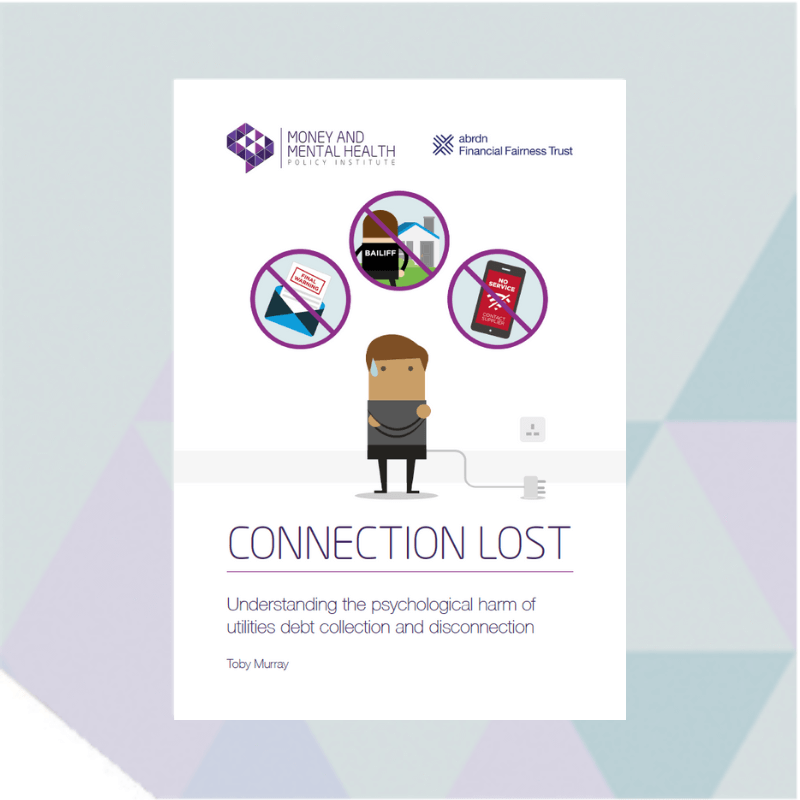Toby Murray, Senior Research Officer, Money and Mental Health Policy Institute
Connection Lost
Understanding the psychological harm of utilities debt collection and disconnection.
This report (which is funded by abrdn Financial Fairness Trust) looks at the psychological harms caused by utilities debt collection and disconnection. It shows that 7 million people are in some form of water, energy, or telecommunications debt. Nearly 1 million are in debt to all three.
More than half of those in some form of utilities arrears have a mental health problem (52%). More concerningly, people with severe and enduring mental illnesses (SMI) such as bipolar or schizophrenia are over four times as likely to be in some form of utility debt as those without a mental health problem.
Being behind on essential bills can have an outsized impact on our mental health. The psychological toll of struggling to pay for essential services like heating or internet may come with an increased sense of stigma, while common debt collection processes can force customers in arrears to forgo critical usage, exacerbating poor health outcomes.
Key Recommendations
Utility firms should:
- Put in place measures to better support customers in arrears. This includes taking action to make it easier for people in vulnerable circumstances to disclose their needs, and ensuring communications are accessible and supportive for everyone. Telecoms firms should take more steps to engage customers before disconnection.
Working with firms in their sector, all utility regulators (Ofcom, Ofgem and Ofwat) should:
- Work with the government to reduce the scale of debt and arrears in each sector by introducing a range of additional forbearance and affordability measures, including social tariffs, debt matching schemes and debt write off.
- Improve communications processes to ensure people with mental health problems are supported to disclose, and that communications encourage engagement through implementing universal design and better support.
- Update guidance to bring utility providers in line with central government creditors like HMRC, who commit to only using FCA-regulated debt collection agencies.
- Require all firms to implement a pre-compliance stage to contracts with enforcement agents, to help people avoid unnecessary charges.
The government should:
- Explore, as part of their financial inclusion strategy, the issue of disconnection from broadband and mobile services as a barrier to banking for customers who have been disconnected.
- Grant Ofgem the power to implement a full ban on force fitting prepayment meters.
- Amend the Taking Control (Fees) Regulations 2014 to allow for repayment plans at the compliance stage of High Court Enforcement.

abrdn Financial Fairness Trust has supported this project as part of its mission to contribute towards strategic change which improves financial well-being in the UK. The Trust funds research, policy work and related advocacy activities. It aims to tackle financial problems and improve the living standards of people on low-to-middle incomes in the UK. It is an independent charitable trust registered in Scotland. The Trust’s name recognises a historic donation from Aberdeen Group plc which led to the foundation of the Trust. The views expressed by the Trust and its funded partners do not necessarily represent those of the Aberdeen Group. For more information see https://www.financialfairness.
